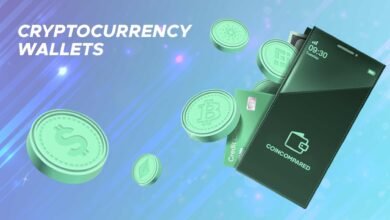
The Ethereum Network is a decentralized, open-source computer network that uses ETH as its native digital money. Like the Bitcoin Network, the Ethereum Network keeps track of all transactions on a “blockchain,” a decentralized, open, and unchangeable public ledger. The protocol that controls ETH creation and the cryptographic processes that confirm and protect ETH transactions are both included in the open-source Ethereum Network software code. The Ethereum Network, in contrast to the Bitcoin Network, permits peer-to-peer contracts, also known as smart contracts, as well as decentralized apps, going beyond a peer-to-peer money system.
As an open-source platform that would drastically decrease the barrier for developers to design their own smart contracts and decentralized apps, Vitalik Buterin suggested the Ethereum Network in 2013. A Swiss company called Ethereum Switzerland GmbH finally took the lead in developing the Ethereum Network, which is based on Buterin’s idea. The Ethereum Foundation is a specialized non-profit organization that supports the Ethereum Network’s continued development. In July 2015, the Ethereum Network went live.
ETH and Bitcoin (“BTC”) have a lot in common. They both rely on underpinning networks with blockchains connected to them, use “wallets” and “private keys” to facilitate transfers and track ownership, enable “mining” to generate new supply, include software source code that controls the cryptographic operations that verify and secure transactions, and allow network users to modify the open-source software and convince other users and miners to adopt the suggested modification.
A maximum of 16 million ETH may be mined annually on the Ethereum Network. There is no aggregate limit on the total amount of ETH that can be mined, unlike BTC. A switch from the present “proof-of-work” (“PoW”) protocol to a “proof-of-stake” (“PoS”) protocol, in which miners settle and validate transactions by the amount of coin they lock within the system, is conceivable for ETH miners. PoS protocols are preferable since they need a lot less effort and processing power.
Like BTC, ETH can be used as a store of value or a medium of exchange. However, the extra use cases for the Ethereum Network are frequently linked to the price of ETH. Similar to how the internet protocol HTTP (Hypertext Transfer Protocol) promotes communication over computer networks, Bitcoin and Ethereum are regarded as protocol layers since they are the foundations that enable operations on their respective blockchains.
An “application layer” sits on top of the protocol layer, allowing outside programmers to build their applications. The ease of working on the application layer of the Ethereum Network is a key distinction between the Bitcoin Network and the Ethereum Network. Developers can program smart contracts, fungible and non-fungible tokens, and decentralized applications using Solidity, a language that is less constrained than developing on the Bitcoin Network. Solidity is the language that allows developers to program applications that run on the Ethereum Network.
How to Purchase Ethereum:
It might be simpler than you imagine to invest in Ethereum. Here are the first five steps to getting started:
1. Establish Your Risk Level:
There is no getting around the fact that purchasing Ethereum can be risky. While there is some risk involved with every investment, cryptocurrencies are particularly susceptible to price changes. Just consider the influence a few hundred characters could have on the price of a cryptocurrency: For instance, Bitcoin’s value dropped 15% after Elon Musk announced that Tesla would no longer accept Bitcoin as payment.
Ether has historically had both remarkable returns and catastrophic falls, sometimes in quite brief periods. Notably, the price of a coin dropped from a peak of approximately USD 4,000 in May 2021 to less thanUSD 1,800D in June 2021. If you had invested at the peak, a month later you would only have half the value. That’s a high level of volatility.
Therefore, before purchasing ether, it’s crucial to take into account your risk tolerance as well as the diversification and stability of the remainder of your investment portfolio. Never spend more on cryptocurrency than you can afford to lose, according to experts.
2. Pick a Cryptocurrency Exchange:
When compared to purchasing stocks or mutual funds through your existing brokerage account, purchasing ether is a little more difficult. Major markets like the Toronto Stock Exchange (TSX) don’t allow the trading of cryptocurrencies. Create an account on a cryptocurrency exchange before you purchase cryptocurrency. Practically, it is identical to the brokerage systems you may be more accustomed to:
Buyers and sellers can trade dollars or other fiat currencies for cryptocurrencies like Ethereum, Bitcoin, or Dogecoin on cryptocurrency exchanges. Take a look at our list of the best cryptocurrency exchanges if you don’t already have one in mind to locate the one that’s perfect for you. Most exchanges have a straightforward purchasing interface for new users, even if it could have greater costs than their trading platform. However, other exchanges have more complicated trading platforms.
Several important points: Make sure the exchange you choose has a crypto wallet available for you to store your investments. The vast majority do, but you’ll need to acquire one of your own if yours doesn’t.
Additionally, you may always use a site like Wealthsimple Crypto or Coinsmart if you’re a true beginner. Your ability to buy cryptocurrencies will be more streamlined as a result, but there is a downside: You cannot withdraw your Ethereum investment and store it in a different wallet or use it to make online transactions. If you use one of these streamlined sites, your cryptocurrency can only be exchanged on the platform where you purchased it. So, to hold it in a different wallet, you would need to withdraw money from that platform and then repurchase it on a cryptocurrency exchange.
3. Fund Your Account:
You must fund your account before you can purchase Ethereum through a cryptocurrency exchange. You will often deposit money from a bank account, such as your individual checking or savings account. You can also buy cryptocurrency using a debit card (although not all of Canada’s Big Five Banks allow it) and some Canadian-based cryptocurrency exchanges that accept Interac e-transfer.
Review the fees associated with the crypto exchange before picking a funding method; they can differ depending on the method. For instance, while debit card transfers on Gemini are free, wire transfers cost 3.49% more.
One word of caution: A credit card may be used to purchase cryptocurrencies on some platforms Although it could seem alluring, credit card providers typically view bitcoin purchases as cash advances. In addition to the fees charged by the cryptocurrency exchange, your card may charge you a higher interest rate and a cash advance fee.
4. Purchase ETH:
The market hours restrict your ability to purchase stocks, mutual funds, or exchange-traded funds (ETFs). For instance, the Nasdaq exchange is closed on weekends and some holidays and has trading hours of 9:30 a.m. to 4:00 p.m. ET.
Ethereum and other decentralized cryptocurrencies operate substantially differently in that you can purchase and sell them whenever you want. To acquire Ethereum, enter its ticker symbol, ETH, in the exchange’s “buy” section along with the desired purchase amount. You can buy a portion of an Ethereum token if you don’t want to buy a full one or don’t have enough funds in your account to do so. If Ethereum costs $2,000 and you pay $100, for instance, you will buy 5% of an Ether currency. This is comparable to buying a fractional share of stock.
5. Keep Ethereum Safe:
You must store your cryptocurrency after the processing of your Ethereum purchase. certain people choose to hold their assets personally to lower the possibility that they will lose their cryptocurrency, even if certain services will do it for you. This is understandable, but it’s also crucial to keep in mind that the majority of significant exchanges do guarantee the holdings of their customers and frequently store the majority of their assets offline to prevent significant theft. Furthermore, in the past, exchanges that were hacked have paid up any losses.
But if you want your cryptocurrency to be secure, you can select between two different kinds of third-party wallets:
Hot Wallet: A hot wallet may be accessed from a computer or smartphone and is linked to the internet. They’re practical and typically offered at no extra cost by bitcoin exchange platforms, however, you can also use your own if you choose to keep your cryptocurrency off of the exchange. However, given that they continue to remain online, it is at a higher risk.
Breaches of Security:
Cold Wallet: In contrast, cold wallets are external, totally unconnected devices. They typically cost between $50 to $200 depending on the type you select, though there are even more expensive variants available. Although you have to manually connect cold wallets to the internet each time you want to access your cryptocurrency, they are safer than hot wallets and may make sense if you hold a sizable amount of Ethereum or other cryptocurrencies.
Advice on Selling Ethereum:
Simply return to your cryptocurrency exchange and enter the desired selling amount to sell your Ethereum.
However, if you’re selling a significant amount of cryptocurrency, you might want to speak with a tax expert. Cryptocurrency is taxable from the perspective of the federal government despite being decentralized. When it comes to taxes, the earnings from the sale are normally subject to capital gains taxes, which can have a considerable impact on how much you owe the CRA. Cryptocurrency is taxable from the perspective of the federal government despite being decentralized. When it comes to taxes, the earnings from the sale are normally subject to capital gains taxes, which can have a considerable impact on how much you owe the CRA.
Ethereum Investments Worth it or Not:
With more than 116 billion coins already in the hands of investors, Ethereum is quite well-liked. However, just because a cryptocurrency is well-known doesn’t necessarily imply you should utilize it.
Make sure you’ve done your research and your finances are in order before purchasing a volatile investment like Ether. Your retirement accounts should be fully funded, you should have little debt, and you should have a sizable emergency fund. Even if you can check all those boxes, you should diversify your portfolio by placing Ethereum and other cryptocurrencies only in a small fraction of your overall investments.
Conclusion:
In conclusion, it has never been simpler to buy Ethereum or look to acquire Ethereum, thanks to the proliferation of cryptocurrency exchanges, trading platforms, and decentralized exchanges. You may rapidly purchase Ethereum ETH and join the booming Ethereum network via an open-source platform. Create a bank account first, then connect it to a trustworthy and authorized cryptocurrency exchange.
After the verification procedure is complete, you can fund your account using a variety of payment options, including debit cards, Apple Pay, Interac e-Transfer, bank wire transfers, and bank transfers. If you have enough funds in your account, you can instantly acquire Ethereum or other cryptocurrencies while keeping an eye on the price, market cap, and available supply.
Don’t forget to keep your Ethereum secure in an Ethereum wallet, whether it’s a hardware, hot, or cold wallet. There are additional software wallets and third-party wallets accessible. Keep up with the most recent advancements in blockchain technology, smart contracts, decentralized apps, and smart contract execution. Before investing, take into account your risk appetite, platform fees, trading costs, possible price alterations, and the sizeable investment required for exchange-traded funds.
Make informed judgments about buying and selling Ethereum, Bitcoin, and other digital currencies by doing your homework and talking to other users. When choosing the best funding and payment method, keep in mind the distinctions between fiat cash and digital currencies. Manage your private keys safely to keep your ETH secure. If your investment strategy allows it, take into account increased costs while purchasing Ether and keep ETH as a long-term crypto asset.
FAQs
Why is Buying Cryptocurrency in Canada so Difficult?
Most cryptocurrency buying sites require proof of verification if you wish to purchase cryptocurrency using a credit card due to legal cryptocurrency rules and security regulations.
Will Binance Depart From Canada?
Binance, a cryptocurrency exchange, has stated that it will stop operating in Canada due to the country’s difficult regulatory climate.
Which Canadian Banks Accept Cryptocurrency?
Canada’s Top 12 Crypto-Friendly Banks
- TD Toronto-Dominion.
- Canadian National Bank.
- The Coast Capital.
- CIBC is the acronym for Canadian Imperial Bank of Commerce.
- RBC.
- The Scotiabank.
Is Ethereum a Canadian Business?
By market capitalization, it is now the second-most valuable cryptocurrency in the world (after Bitcoin). Programmer Vitalik Buterin, a Russian-Canadian, founded the Ethereum network in 2013. It was created using blockchain building blocks.






